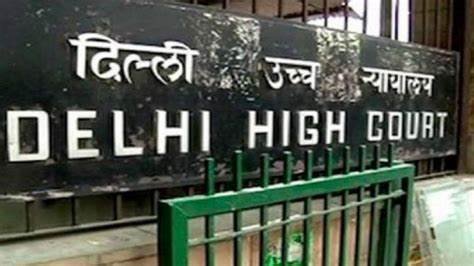The Delhi High Court recently declined to entertain a petition that sought to introduce “legal studies” as a subject in all schools. The court, headed by Chief Justice Satish Chandra Sharma, stated that the decision regarding teaching legal studies to school children falls within the purview of government authorities, as it is a matter of policy. The court deemed the plea a “sheer misuse” of the forum.
The lawyer representing the petitioner argued that legal education is a fundamental subject and the backbone of the Constitution. The lawyer pointed out that the Central Board of Secondary Education (CBSE) had recently announced the addition of “legal studies” as a subject, and urged serious measures to be taken in this regard. The petitioner had discovered, through interactions with students, that there was a desire among them to learn about law, but a lack of faculty to teach the subject currently.
However, the bench, including Justice Subramonium Prasad, asked the lawyer to cite the right that empowered the petitioner to demand the teaching of such a subject in schools. The court observed, “Where is the right to demand that it must be made part of the curriculum? It is in the domain of the government.” Consequently, the court dismissed the petition, acknowledging the government’s efforts in the field of education and the existence of the new education policy.
The lawyer representing the Delhi government, Santosh Kumar Tripathi, stated that the government was already providing appropriate education to students, and the introduction of a new subject falls under the expertise of academic professionals. Additional Solicitor General Chetan Sharma, appearing for the Centre, mentioned that the ‘Know your Constitution’ campaign had already been implemented in schools to promote legal education.
With the court’s decision, the introduction of “legal studies” as a compulsory subject in schools remains a matter within the jurisdiction of the government. While the petitioner argued for the significance of legal education and the demand for it among students, the court emphasized that policy decisions concerning the curriculum are the prerogative of the government authorities.

